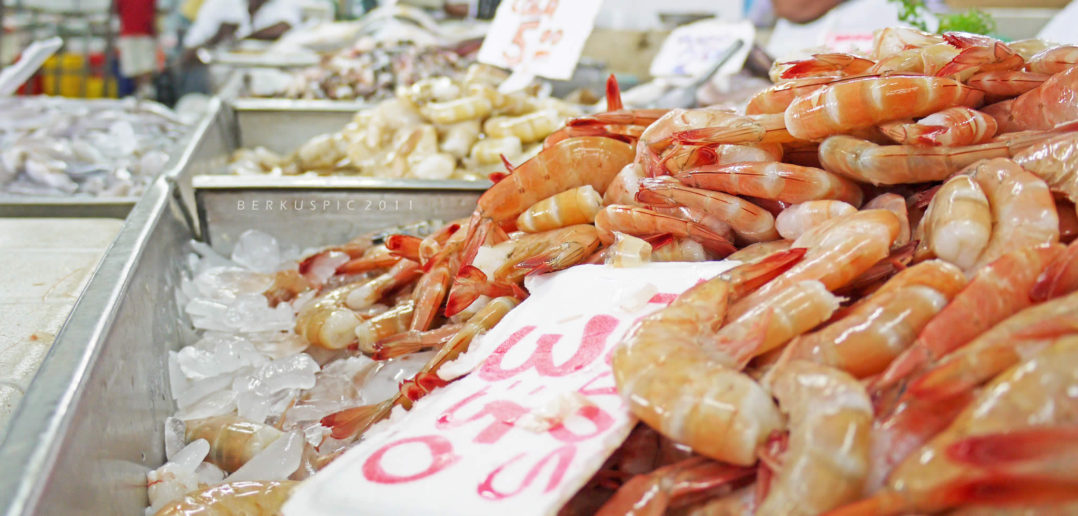Thailand’s political turmoil since last year’s military coup d’état has surprisingly flown under the radar, however, a recent Guardian investigation that built on a yearlong Associated Press investigation revealed a network of human trafficking that ought to be even more attention-worthy than preceding events. In reaction, the United States, in its Monday report on Trafficking in Persons (TIP) have maintained Thailand for the second year in a row the infamous ‘Tier 3’ designation for failing to do enough to combat modern day slavery. The whiff of sanctions is now in the air, as the White House has 90 days at its disposal to decide whether to impose coercive measures on Bangkok. As for 10 Downing Street, not a peep was uttered in spite of a considerable body of evidence that shows how British consumers are regularly eating fish caught by slaves.
According to journalists, the overfishing of South Asian seas and a demand for increasingly cheap labour means that transporting men and women is now more profitable for boats than carrying fish. The Rohingya people of west Burma, as well as Laotian, Cambodian and Vietnamese migrants, often refugees fleeing persecution, put themselves into the hands of brokers in the hopes of being taken to Malaysia or Thailand where their prospects are relatively better. Human rights groups have reported that these people transported in boats are then held for ransom in jungle prisons; if relatives cannot afford their freedom they are then sold as labour to Thai fishing boats, sometimes without returning to shore for years at a time. The severe conditions, violence, sexual abuse and the death toll of this network of human trafficking go without saying. Why isn’t Britain boycotting seafood exports from Thailand then?
Follow the money
Thai seafood exports are worth £4.7 billion a year, with the United Kingdom as its 16th biggest exporter. UK Trade & Investment published a guide in 2011 stating, “Tesco is the largest UK investor in Thailand”, noting it as one of the biggest successes in trade with Thailand. Indeed, Thailand supplies Britain with most of its prawns and other seafood products; the Thai conglomerate CP Foods caters to some of the largest British and French supermarket chains. Although CP Foods themselves do not employ forced labour, slaves still feature in their chain of operation – a fact known to all companies involved. First, the fishing boats complicit in human trafficking and functioning by enslavement sell “rough fish” (undesirable for direct consumption) to processing plants that then turn it into fishmeal, which is used by CP Foods to feed their farmed prawns – the end result of which is on your plate or a freezer shelf at your local Iceland.
The supermarkets, when confronted with the facts of some of their products’ origins, all formally adopted an ethical stance and requested audits looking into the working conditions of their suppliers. However, none seem to have reached as far as the fishing boats in charge of raw material, nor have they made further efforts to instigate change. Barring government level pressures, the odds are that once the media attention moves on to the ‘next big thing’, human trafficking will continue unhindered.
For its part, the Thai government simply issued bland statements meant show its resolve to crack down on human trafficking, but, as Anti Trafficking groups based in Thailand have shown there is little or no evidence of this and have called it a superficial promise since human trafficking boats were still active this year. The International Labour Organisation estimates that there are some 500,000 slaves within Thai borders, and investigations have shown that Thai officials themselves have a hand in the industry. With a worker worth 30,000 baht (£550) to brokers and fishing boats capable of carrying up to 400 people, it is of no surprise that human trafficking is now more lucrative than fishing itself. After receiving warnings from the EU, Thai authorities issued hasty fishing reforms and policies causing fishermen to go on strike. In an already fragile and precarious business, imposing reforms that issue fines to fishermen has most likely worsened the situation.
Despite the European Union threatening Thailand with a trade ban and condemning the Junta’s coup d’état in 2014, no action was carried out to enforce any of these warnings. Britain was equally silent. It seems that without Thailand at the forefront of the media, politicians are choosing to look the other way. With NGOs frequently leading investigations and The Global Slavery Index ranking Thailand second behind India, it is not information on the subject that is lacking. Deliberate silence and on-going trade within the international community is not more different than offering outspoken support. A UK Trade and Investment Thailand report recently published prophecies that “During the next 5 years the region is expected to become a major centre for activity in the upstream, midstream and downstream oil and gas market”, which explains the reluctance to impose sanctions and shows that the United Kingdom has no intention of distancing itself from its Thai partners.
Since last year’s military coup, during which General Prayuth Chan-ocha imposed himself as Prime Minister, censorship and political repression have mushroomed. Known for his many gaffes, Thailand’s leader said earlier this year “we’ll probably just execute them” in response to a journalist asking what would happen to reporters than didn’t comply with the government. The draft constitution put in place by the Junta fully supports an authoritarian regime while attempting to veil itself behind a national “happiness campaign” and heavily limited political freedom. It is impossible to predict how Thailand’s internal affairs will unravel. General elections have already been postponed several times, most recently till 2017, and there are now divisions amongst military powers concerning who will succeed to the throne.
Britain, in concert with the European Union and Washington should decide whether Thailand’s continuous drift away from the rule of law merits a tougher stance, bearing in mind that sometimes befriending authoritarian leaders means making enemies of the people. The answer should be obvious.




